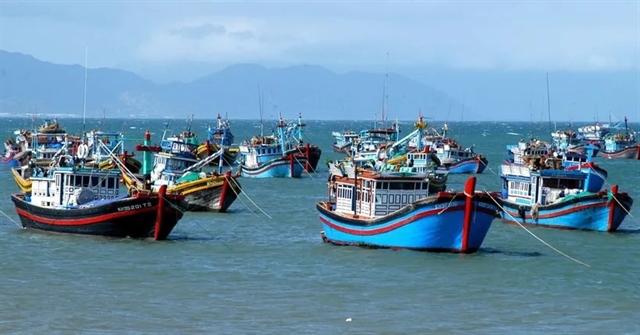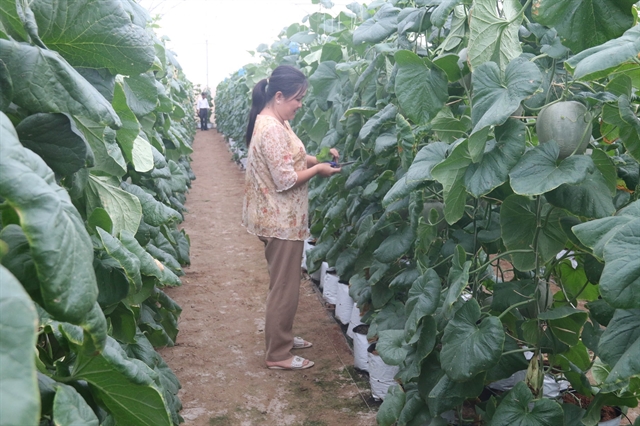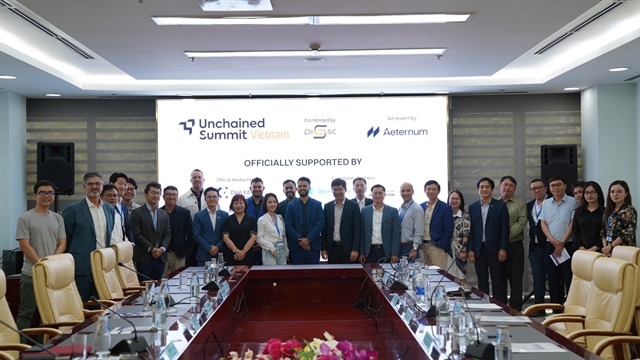 Society
Society

The Cửu Long (Mekong) Delta province of Tiền Giang’s concentrated farming areas for key agricultural products have improved farmers' incomes and have helped the province adapt to climate change.

|
| Honeydew melons planted in poly greenhouses in Tiền Giang Province’s Gò Công Tây District. – VNA/VNS Photo Minh Trí |
TIỀN GIANG – The Cửu Long (Mekong) Delta province of Tiền Giang’s concentrated farming areas for key agricultural products have improved farmers' incomes and have helped the province adapt to climate change.
The province, which is the country’s largest fruit producer, has fertile soil and abundant water sources for agricultural production since it is located along the Tiền River, a tributary of the Mekong River.
Nguyễn Văn Mẫn, director of the province’s Department of Agriculture and Rural Development, said the province had implemented effective agricultural restructuring.
The province has developed concentrated farming areas for 32,000ha of high quality rice area in the west; 13,500ha of durian in Cai Lậy, Cái Bè and Tân Phước districts; 14,000ha of pineapple in Tân Phước District; and 9,140ha of dragon fruit in Chợ Gạo, Tân Phước, Gò Công Đông and Gò Công Tây districts.
Last year, dragon fruit farmers earned a profit of VNĐ400 – 600 million (US$17,230 – 25,900) per hectare, while farmers who grew off-season dragon fruit earned 1.7 times more than the main season dragon fruit, according to the department.
To adapt to climate change, the province has switched to cultivating dragon fruit in rice growing areas in Đồng Tháp Mười (Plain of Reeds) region’s alum-affected areas, the Gò Công coast, and in saltwater-intrusion areas in the Vàm Cỏ River since the fruit grows well and has high yield and value there.
Võ Thị Kim Phượng, deputy head of the province’s Plant Protection and Cultivation Sub-department, said that farmers had received instruction on how to grow high-quality varieties like pink flesh and pink-violet flesh dragon fruit.
The province had also provided advanced techniques to grow dragon fruit under an intensive farming model, she said.
The average yield of the concentrated dragon fruit farming areas had risen to 31.3 tonnes from 27 tonnes per hectare a year before.
Linkages
The province also strengthened linkages among co-operatives and companies. Twenty-three companies, co-operatives and sale agents have farm contracts with farmers to produce and consume rice.
It also has 74 companies, co-operatives and establishments that buy dragon fruit, mostly for export.
Ngô Hữu Thệ, secretary of the Chợ Gạo District Party Committee, said the district’s 18 communes had developed linkages among farmers and companies to produce and buy agricultural produce, mostly dragon fruit.
Chợ Gạo had established concentrated farming areas for its key products such as dragon fruit, coconuts and vegetables.
The Thiên Phúc Co-operative in Chợ Gạo’s Bình Thạnh Commune had about 150ha of dragon fruit planted to Vietnamese good agricultural practices (VietGAP) standards.
Nguyễn Mạnh Tường, director of Thiên Phúc, said the co-operative planted dragon fruit under a value chain by supplying seedlings, input materials and farming techniques at a price 7 – 15 per cent lower than the market price.
The co-operative guarantees stable prices, ensuring that farmers make a profit, according to the director.
The co-operative also buys dragon fruit to make fruit powder, syrup and jam, and sells fresh fruit to export processors.
Most export products are unprocessed. To develop sustainable concentrated farming areas, the province has increasingly called for investment in the manufacture of refined agricultural products.
Mẫn, director of the province’s Department of Agriculture and Rural Development, said that trade promotion activities had helped expand domestic and foreign markets for its agricultural products.
The province has signed deals to supply agricultural products to wholesale markets in HCM City, Đà Nẵng and Hà Nội. It also exports milk apple, dragon fruit, durian, and green skin and pink flesh grapefruit to many markets. Lò Rèn Vĩnh Kim milk apples are exported to the US. – VNS




